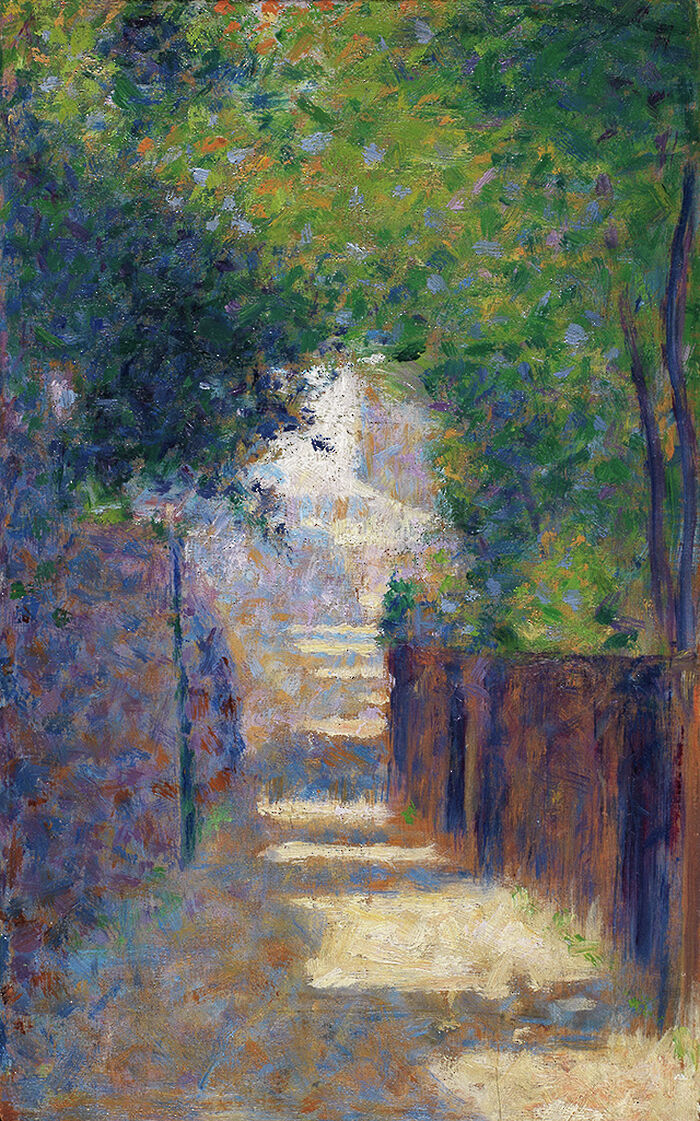Fitz Favourites: Virile brutality in Degas’s David and Goliath
Harry Goodwin pays a gritty homage to the artist who, eschewing human warmth, captured instead the essence of the human experience.
Don’t go looking to Edgar Degas (1834-1917) for a laugh. Humour, irony and wit are human consolations, and beside the point if you’re making your way as a demigod. He was the Kevin de Bruyne of French Impressionist painting, a crabby and withdrawn obsessive with nothing going for him except eye-watering talent in his profession.
Talent means nothing until kindled by a deep yen for achievement. What made Degas want to be a perfect painter, given the attendant personal toll? Not an urge to confess his emotions, nor affection for anyone or anything: his paintings are utterly devoid of human feeling. Degas’s arrival at mastery in his early twenties suggests furious ambition ignited by a messed-up childhood. His mother died when he was thirteen. Manic dedication to art leaving him a dopey manchild in everyday life may have been a way of inspiring ersatz maternal feelings in others. Geniuses don’t do the laundry.
The eternal singleton, Degas’s paintings of women betray a bleak longing for clothes-on intimacy. Degas is after a hug, not a shag - he just wants to be one of the girls.
He certainly wanted mothering, of a kind. The eternal singleton Degas’s paintings of women betray a bleak longing for clothes-on intimacy. He sees them as objects, but not as sex objects; he’s after a hug, not a shag. Bravura control of perspective gets this across. By depicting huddled women – ballerinas, café posers, chums at the races - from behind or above, he intimates his own feelings of exclusion, as a shy and bearish man, from a world of private platonic tenderness between women. He wants to be one of the girls.
That’s an illusory desire for any man with Degas’s Roman-road sexuality, at least until old age. Jealousy swamps many canvases, and he ends up depicting women, including the iconic ballet dancers, in Guantanamo-style stress positions for the sake of making his models suffer. The Fitzwilliam’s At the Café (1877) has one young woman going grey with despair while her friend radiates concern. Though moving, it’s not a tender picture: Degas doesn’t care enough about the sad woman to prise open her soul, but her companion bothers him into roughing up the picture with slashes of grey over bare canvas. Imagine having a woman care about you, he seems to scoff.
It’s scary and dodgy and weird, as men’s saddest thoughts often are. Scary also is the aplomb with which the young Degas, chasing perfection, marshals the array of emotions constituting male youthfulness. He gets them all in, on one canvas or another: the sincerity, the toughness, the ardour, the drive, the levity, the potency, the magic; and the yearning, the greed, the malice, the illusion, the shyness, the sadness, the flatness.
Scary is the aplomb with which Degas marshals the array of emotions constituting male youthfulness.
David and Goliath (1859) is a brutal, electric painting like nothing else in the Fitzwilliam. Through a steep compositional perspective, David dominates the whole right half of the canvas. He’s less a boy or a man than a strained coil of flesh, with the sole of his foot vertical and his arm pulled into his side. His skin has the same scratchy, roughed-up look as the desert beneath him. Beguiling us with its dry dirty smoulder, Degas’s unfinished finish conjures up both a sense of tunnel vision and of infinite space. Like David, he is here pushing his budding virile powers to their limit, then one inch beyond.
Why has David risked it all for this empire of dirt? The lightning-white crackle of his slingshot makes the question urgent, as does Goliath’s closeness. But there is pink mist shrouding the giant’s head: David has just this moment landed the kill. The staggering Goliath seems to be holding back a slab of twilight sky. When he falls, it will burst through the scene like adult clarity through a testosterone fog; the live-and-let-die intensity will vaporise, and David will intuit in an instant a dozen scalding truths about what it means to live as a man outside the gaze of women – if indeed it means anything at all.
 News / Downing investigates ‘mysterious’ underground burial vault 29 December 2025
News / Downing investigates ‘mysterious’ underground burial vault 29 December 2025 News / Unions protest handling of redundancies at Epidemiology Unit30 December 2025
News / Unions protest handling of redundancies at Epidemiology Unit30 December 2025 Lifestyle / Ask Auntie Alice29 December 2025
Lifestyle / Ask Auntie Alice29 December 2025 Features / ‘Treated like we’re incompetent’: ents officers on college micromanagement30 December 2025
Features / ‘Treated like we’re incompetent’: ents officers on college micromanagement30 December 2025 Science / Astronomical events to look out for over the break29 December 2025
Science / Astronomical events to look out for over the break29 December 2025










